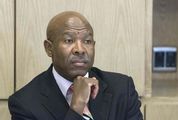A TURBULENT time lies ahead, both nationally and internationally. Change is in the air everywhere, from the economic crunch in Europe to the chaos in the Middle East and the White House’s attempts at détente with Iran and Cuba.
And, of course, President Jacob Zuma’s stumbling efforts to get and keep all of his protectors in the right jobs to cover his corruption tracks, despite the repeated intervention of the courts.
One piece of good news is that the great economic recession is easing, but the political aftershocks are with us.
The US is the one country that is emerging from the recession with a relatively solid recovery, thanks to the Barack Obama administration’s more effective handling of the crisis by pumping money into the economy to stimulate spending and growth. Europe, on the other hand, went the opposite route of austerity and is now sinking ever deeper into deflationary quicksand.
Why Europe, including the UK, which is not part of the eurozone, went that route is puzzling. It was a failure to learn from the mistakes of the past which, as the saying goes, condemns one to repeat them.
To its heavy cost, Europe did the same during the Great Depression of the last century, while Franklin Roosevelt showed the more effective way with his "New Deal" programme of economic stimulation.
Now Europe is attempting a programme of quantitative easing, modelled on the US remedy, but it is late in the day and quick results are unlikely.
As for SA, one can only say our government went the loony route of adding to its recession woes by embarking on a spending spree of wastefulness, embezzlement and theft. All of which has been compounded by large-scale incompetence due to the Zuma administration’s patronage-based political structure.
Our government has been splurging money as if there were no tomorrow. Unfortunately, tomorrow is about to dawn.
Events in Europe this year will have the most direct effect on us, for the European Union (EU) is our biggest foreign investor and trading partner. The question is whether it will survive the year.
Strong anti-EU sentiments are running through various member countries, partly because of a reaction against the austerity imposed on users of the common euro currency, and partly because of the ease with which immigrants from Asia and Africa can cross EU borders.
Elections in eight member countries this year may decide whether disenchantment with the 65-year-old supranational union has reached a tipping point. The first of these was held on Sunday in Greece, where a charismatic 40-year-old newcomer, Alexis Tsipras, of the radical left-wing Syriza party, has emerged the victor. But he fell short of an outright majority, with 36.3% of the votes, and has had to form a coalition with a small right-wing party also opposed to Europe’s austerity policy.
Tsipras has pledged to cut taxes and restore social spending, while at the same time he says he wants Greece to remain in the eurozone. How the newly elected prime minister can manage that is a conundrum.
What seems likely is that he will either get into tough negotiations with the eurozone, which means with German Chancellor Angela Merkel, or Greece will default on its huge sovereign debt and leave the EU, the so-called "Grexit".
If Greece leaves, it could have a domino effect on the other countries facing elections this year — the UK, Spain, Poland, Denmark, Finland, Portugal and Estonia. All have anti-EU parties, such as the UK Independence Party, which is giving Tory Prime Minister David Cameron a headache.
A parallel phenomenon in the developed world is that the old pattern of big political parties representing mass political constituencies is breaking down. New, smaller parties are springing up everywhere and gaining traction.
I suspect the reason for this is the burgeoning growth of the internet, which is enabling more ideas to be circulated and thus more political groups are being formed.
Many of these new political groups have populist beginnings, of the left and the right, but as they get into the tough business of realpolitik, of electioneering and coalition negotiations, which require compromise, they will mature. Then those with real roots in the soil will hopefully contribute some valuable new ideas.
What this changed pattern points to is more and more coalition governments in Europe and elsewhere. The days of periodic rotation of big-party governments in the developed democracies are over. The future of democratic politics is going to involve hard policy bargaining to form coalitions, a pattern likely to spread beyond the Old World.
I believe that pattern will soon make an appearance in SA. The days of the African National Congress (ANC) as a single dominant party are numbered, and the Democratic Alliance (DA) is still a way short of being able to achieve a majority on its own.
Meanwhile, other political groups are on the rise. The Economic Freedom Fighters (EFF), despite being a populist movement without any realistic political programme, has managed to mobilise a considerable number of disillusioned black voters. It is already a significant player and has shaken up our political establishment.
The National Union of Metalworkers of SA (Numsa) is trying to form a United Front, with a view to launching a workers’ party in time for next year’s local government elections. Those elections are going to determine our future political landscape.
There is a strong possibility that the ANC will fail to get an outright majority in four of the nine big metropolitan councils — Johannesburg, Tshwane, Nelson Mandela Bay and Ekurhuleni, which, together with Cape Town, which the DA already holds, are responsible for generating about 70% of our gross national product.
The ANC may well win the most votes in those councils, but if it fails to get an outright majority, it will be unable to govern. It will have to find a coalition partner. And that is when the policy bargaining will begin.
Which partner would it choose? The DA? That would give Helen Zille’s party credibility in the black community, which the ANC would be reluctant to do. The EFF? Could the ANC dare clutch the viperous Julius Malema to its bosom once again — and wreck the economy in the process by accepting his bottom line of nationalisation without compensation?
Or would it get into harness with the Numsa crowd, which has been vocal in its denigration of Zuma?
Whatever the ANC’s choice, it will determine the future political direction of the country. I believe the only salvation from the mess we are in is to recognise that we require a regime that will commit itself to encouraging a strong private sector, which can generate the jobs and the tax revenue needed to fund excellent public education and a sound welfare state to support the poor.
If Zuma, who went to the World Economic Forum in Davos with a team of Cabinet ministers to urge foreign investors to come to SA, lives up to his promise of a turnaround, they will come. But if they get the faintest whiff that he may team up with Malema or Numsa’s Irvin Jim, we’ll get a colder shoulder than even that frosty Alpine peak has to offer.
• Sparks is a former editor of the Rand Daily Mail.






















Post a comment